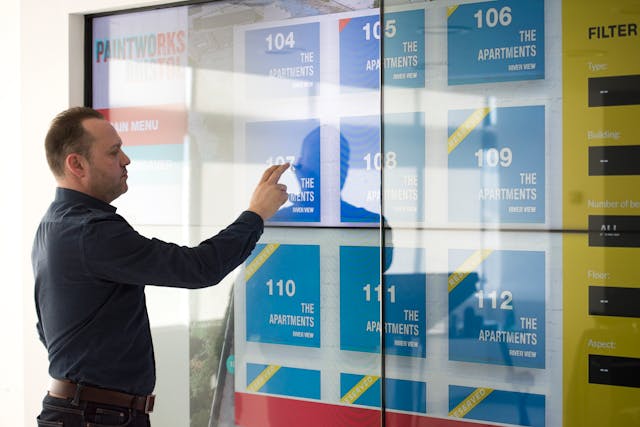1. Matching Your Lifestyle Preferences
A buyer’s agent takes the time to understand your lifestyle preferences and aligns these with their research on neighborhoods. This could include factors such as:
- Family considerations: If you have children or plan to, proximity to well-rated schools, parks, playgrounds, and family-friendly amenities are important. Your agent will identify neighborhoods with good schooling options, extracurricular activities, and a safe, welcoming environment.
- Commuting needs: If you need to commute to work, a buyer’s agent will research neighborhoods that offer easy access to public transportation or highways. They can calculate commute times and assess traffic patterns to ensure that your work-life balance is optimized.
- Proximity to amenities: Whether you prefer a vibrant urban setting close to restaurants, cafes, and cultural venues, or a quieter, suburban area with access to nature and green spaces, your buyer’s agent will locate neighborhoods that match your lifestyle goals.
- Active lifestyle: If you enjoy outdoor activities like hiking, biking, or going to the gym, your agent will prioritize areas with parks, trails, gyms, or recreational centers nearby.
By aligning neighborhood features with your lifestyle, the agent ensures that your new home fits seamlessly into your daily routine.
2. Evaluating Community Atmosphere and Demographics
The community atmosphere is a vital part of deciding where to live, as it can impact your overall happiness and satisfaction with the neighborhood. A buyer’s agent conducts research into:
- Demographics: Understanding the demographic makeup of a neighborhood (e.g., young professionals, families, retirees) helps determine if it’s the right fit. Some buyers prefer a bustling, younger community, while others may seek a quieter, more established neighborhood.
- Safety and security: Crime rates and the general sense of safety are essential factors. A buyer’s agent will analyze crime statistics and even consult with local law enforcement to ensure the area is secure and aligns with the buyer’s safety expectations.
- Community culture: Some communities may have a strong sense of identity, active neighborhood associations, or cultural events that could enhance your living experience. A buyer’s agent will explore whether the area fosters a connected and vibrant community atmosphere that aligns with your values and interests.
3. School District Research
For families, school district quality is one of the most critical aspects of area research. A buyer’s agent will:
- Identify the best schools in the area based on academic performance, extracurricular activities, and community reviews. This can include primary, secondary, and specialized schools (e.g., art or tech-focused schools).
- Check school catchment zones to ensure the property falls within the district of the desired school.
- Research future school developments or changes, such as new schools being built or existing ones being expanded, which could affect the long-term desirability and value of the neighborhood.
A home in a top-rated school district not only benefits your family but can also increase the resale value of the property.
4. Long-Term Investment and Area Growth
Another crucial aspect of area research is assessing the long-term investment potential of the neighborhood. A buyer’s agent looks into:
- Upcoming developments: This includes planned commercial or infrastructure developments, such as shopping centers, transportation projects, or office parks, which can significantly influence property values and the appeal of a neighborhood.
- Gentrification trends: A buyer’s agent keeps an eye on areas that are experiencing or are likely to experience gentrification. While these neighborhoods may be slightly undervalued now, they often show rapid increases in property value over time, making them attractive investment opportunities.
- Historical property value trends: By analyzing how property prices have fluctuated in the neighborhood over the past several years, a buyer’s agent can identify areas that are stable or on the rise, helping you make a sound investment decision.
- Zoning laws: Understanding the zoning laws and regulations for the area ensures that the neighborhood’s character will remain intact, protecting the value of your investment. For example, you wouldn’t want to move into a quiet residential area only to have a commercial building spring up next door due to unexpected zoning changes.
This research helps buyers identify areas with potential for both personal enjoyment and long-term property appreciation.
5. Future Infrastructure and Development Plans
Infrastructure improvements, such as new roads, public transport hubs, and community facilities, can have a significant impact on property values and convenience. A buyer’s agent will:
- Research future projects: They will look into planned city infrastructure improvements like new metro lines, road extensions, or public works projects that could make a neighborhood more accessible and desirable.
- Assess potential downsides: While new infrastructure can boost property values, some developments (e.g., a major highway project) could bring noise pollution or increase traffic, reducing a neighborhood’s appeal. A buyer’s agent helps weigh the pros and cons of any upcoming developments.
Understanding what’s planned for the area ensures that your decision is aligned with not only your current needs but also the future potential of the neighborhood.
6. Amenities and Convenience
Convenience to essential services is another area of focus in lifestyle research. A buyer’s agent will:
- Map out access to grocery stores, healthcare facilities, banks, and other everyday services that are important to you.
- Evaluate leisure and entertainment options, such as theaters, restaurants, nightlife, and cultural activities. If you prefer a neighborhood with a rich array of activities, the agent will prioritize areas that are known for their vibrant social scene.
- Assess walkability: For those who prefer not to drive, a buyer’s agent will evaluate the walkability of a neighborhood, looking at how close essential amenities are to the property.
The convenience of daily life is essential to overall satisfaction with your home, and a buyer’s agent will ensure that your location offers the services you need to maintain your preferred lifestyle.
7. Accessibility and Transportation
Transportation and accessibility are key factors, especially for buyers who commute regularly or require easy access to major highways or public transit systems. A buyer’s agent will:
- Evaluate public transportation options, such as buses, trains, and metro lines, to ensure the neighborhood is well-connected.
- Assess traffic flow and commute times: In areas with heavy traffic, understanding peak-hour conditions can save buyers from purchasing in locations that make daily commutes difficult or time-consuming.
- Identify proximity to major roadways and airports for those who travel frequently.
Accessibility not only impacts day-to-day convenience but also affects future property value, particularly in growing cities where transit access can be a major selling point.






